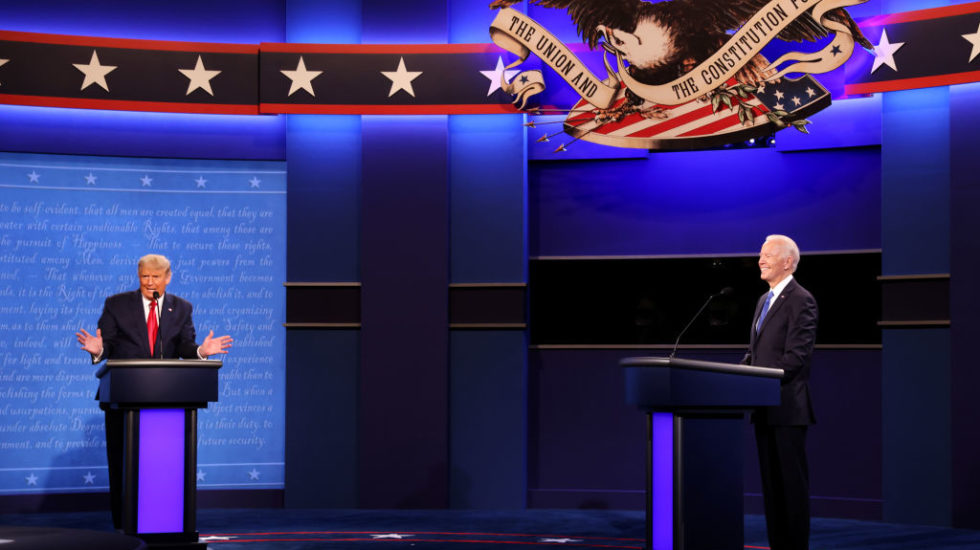President Donald Trump and former Vice President Joe Biden faced one another Thursday night in a second debate — a climactic moment in the 2020 presidential election campaign.
The Covid-19 pandemic that has killed more than 223,000 Americans this year was the debate’s first topic — and it shaded virtually every exchange between the two candidates as the event went on.
“Anyone responsible for that many deaths should not remain president of the United States of America,” Biden said.
“Trump defended his management of the nation’s most deadly health crisis in a century, dismissing Biden’s warning that the nation had a dire stretch (a “dark winter”) ahead due to spikes in infections. And he promised that a vaccine would be ready in weeks,” said the Associated Press.
“It will go away,” said Trump, staying with his optimistic assessment of the pandemic. “We’re rounding the turn. We’re rounding the corner. It’s going away.”
Most experts, including Trump administration officials, have said a vaccine is unlikely to be widely available until mid-2021.
Biden noted that some experts believe another 200,000 Americans will die of Covid by year’s end.
Welker asked about the Covid-19 relief bill stalled in Congress. Trump blamed House Speaker Nancy Pelosi.
When the questions turned to racism and the Black Lives Matter movement, Trump said he has done more for Black Americans than any president since Abraham Lincoln.
“I am the least racist person in this room,” he declared, as Biden smiled, looked down and shook his head.
Biden responded by sarcastically calling Trump “Abraham Lincoln” and branding him “one of the most racist presidents we’ve had in modern history,” adding that “He pours fuel on every single racist fire.”
When time came for closing remarks, Trump said: “I am cutting taxes, and he wants to raise everybody’s taxes, and he wants to put new regulations on everything. He will kill it.”
“What is on the ballot here is the character of this country,” Biden said. “Decency, honor, respect, treating people with dignity, making that sure that everyone has an even chance. And I’m going to make sure you get that. You have not been getting it the last four years.”
Biden added that he would be a president for all the American people.
At least early in the event in Nashville, for the candidates as well as millions of viewers, it was a very different experience from the chaotic first debate in late September.
Trump played more or less by the rules, with far less of the belligerence than he did before, taking his turn in answering questions from moderator Kristen Welker of NBC News. But as things went on, he interrupted both Biden and Welker more frequently.
They were kept well apart in deference to the pandemic, but plexiglass barriers between them were removed.
Trump accused Biden of planning to ban “fracking” by the oil and gas industry. Biden denied it, saying he only opposed fracking on federal land. Most fracking takes place on private lands.
Trump repeated his accusations that Biden and his son Hunter engaged in unethical practices in China and Ukraine. No evidence has been verified to support the allegations, and Biden called them false and discredited.
“Public polls, which the Trump campaign has cast aside as skewed, show Biden with a lead nationally and in key battlegrounds,” reported The Hill. “Still, the race appears tight in some swing states and Trump’s campaign is hoping for a repeat of 2016, when he surprised the country with his underdog victory.”
With nearly 50 million ballots already cast by early voters, and the number of undecideds who could swing the results at a low ebb, some observers questioned whether the debate would, or could, make any difference.
Any answer to that involved Trump’s behavior — and the possibility that he might manage to seem “presidential” in a way he never had before, while giving “voters who are on the fence a reason not to support Mr. Biden,” as the New York Times put it.
Whether the president accomplished that goal, or even part of it, remains very much to be seen.



